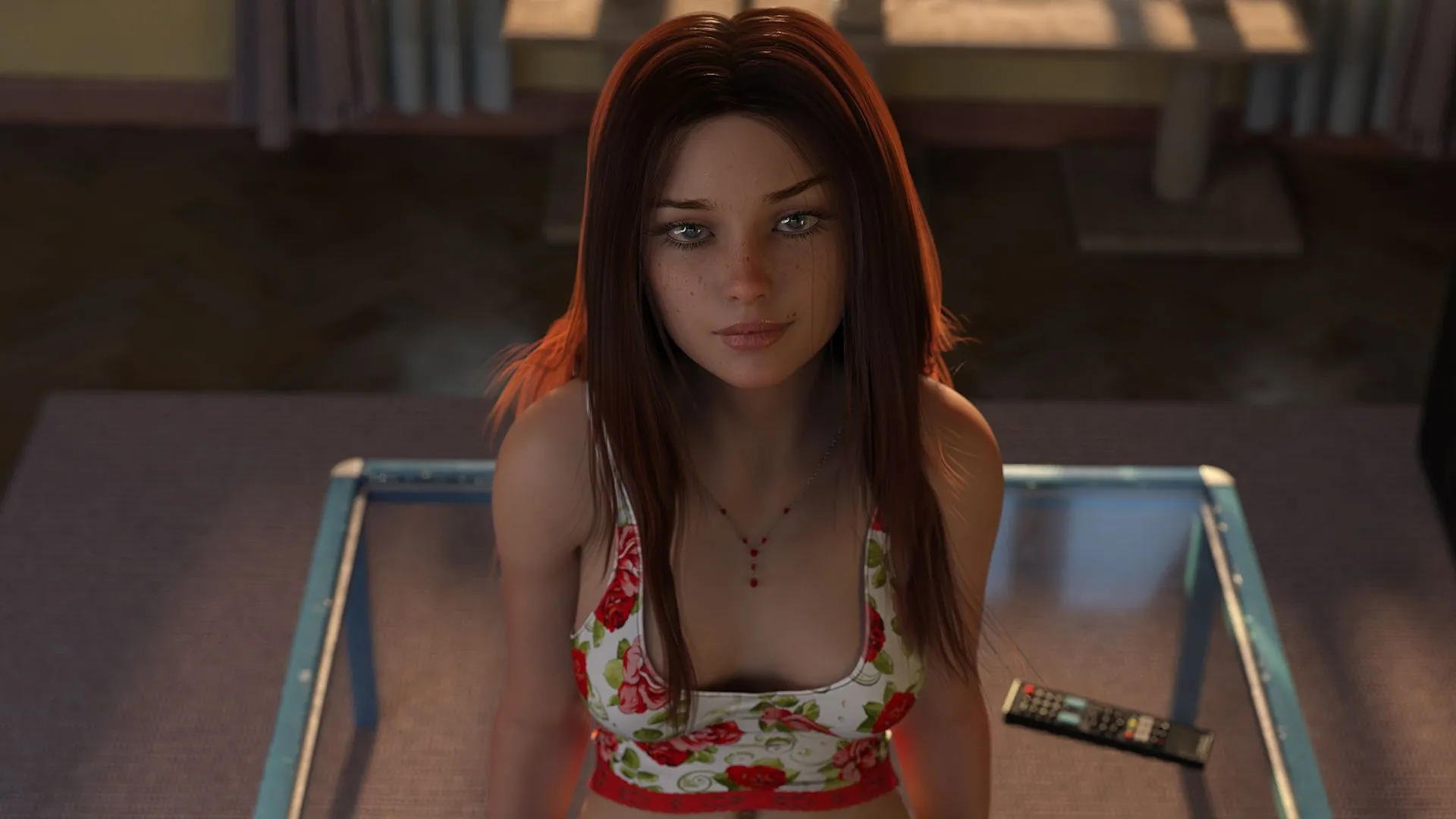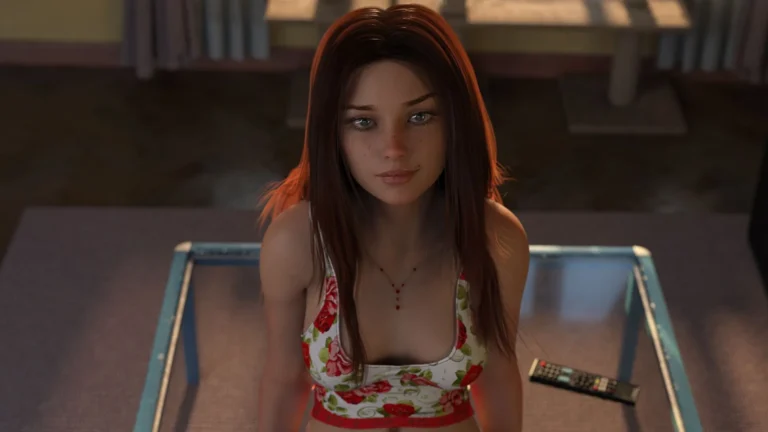
Summer’s Gone
Play Summer’s Gone
Summer’s Gone review
Discover the emotional journey and interactive choices in this unique visual novel
Summer’s Gone is a high-quality interactive visual novel that takes players on a deeply personal journey centered on healing, hope, and love. The story follows a young man struggling with depression and isolation, who must confront his past and forge new connections in a world that feels both familiar and strange. With a focus on mental health, ambition, and the complexities of human relationships, Summer’s Gone invites you to make meaningful choices that shape the protagonist’s path. If you’re looking for a game that blends emotional storytelling with player agency, Summer’s Gone offers a compelling experience that stays with you long after the credits roll.
What Is Summer’s Gone All About?
The Story: Healing and Hope in a Visual Novel
So, what is Summer’s Gone all about? 🤔 At its heart, it’s a story that grabs you by the soul and doesn’t let go. You step into the worn-out sneakers of a young man who was once a bright, promising basketball star, but is now a shadow of his former self. A profound, unnamed trauma has left him isolated, depressed, and simply going through the motions at college. This isn’t your typical “boy meets girl” tale; it’s a raw, emotional journey about picking up the pieces of a shattered life. 🌱
The core of the Summer’s Gone story is this process of healing. The game doesn’t offer quick fixes or magic cures. Instead, it immerses you in a slow, often painful, but ultimately hopeful climb out of a deep darkness. The college setting becomes more than just a backdrop; it’s a catalyst for change, filled with potential new connections and lingering mysteries from the past that you, as the player, get to unravel. This makes it a powerful visual novel about healing, where every interaction, no matter how small, can be a step toward recovery.
I remember playing one evening and being struck by a simple scene where the protagonist just sits by a lake, the silence speaking volumes. It wasn’t a dramatic plot twist, but it felt incredibly real. It mirrored those moments in life when you’re just trying to breathe and find a bit of peace. That’s the authenticity this game delivers. The Summer’s Gone themes of confronting loss, managing mental health, and finding the courage to trust again are woven into the very fabric of its narrative, making it a standout example of mental health in games.
Meet the Characters: A Cast That Feels Real
The Summer’s Gone characters are the true engine of this experience. They aren’t just archetypes; they feel like complex, multifaceted people you could actually meet. 🎭 The protagonist himself is a brilliantly written vessel for the player’s empathy. His internal struggles with isolation and depression are palpable, and your choices directly shape whether he retreats further into his shell or tentatively reaches out.
Then there’s the supporting cast, each with their own baggage, dreams, and personalities. From the seemingly cheerful classmate who hides her own pain to the more direct and challenging individuals you encounter, every character serves a purpose in the protagonist’s journey—and yours. The depth of the Summer’s Gone characters is remarkable. You’ll find yourself genuinely caring about their stories, not just because you have to, but because they feel authentic.
The relationships you build are entirely in your hands. The interactive choices in Summer’s Gone are the game’s heartbeat. A seemingly minor decision, like choosing to sit alone at lunch or accepting an invitation to join a group, can ripple outwards, altering your relationships and unlocking entirely different story paths. 🛤️ This system made me pause and really think about my decisions, much like you do in real life when navigating sensitive social situations. It’s a masterclass in how interactive choices in Summer’s Gone can create a deeply personal connection to the story.
Here’s a quick look at some of the key characters you’ll meet and their potential roles in the healing process:
| Character | Role & Dynamic |
|---|---|
| The Protagonist | A vessel for the player; his journey from isolation to connection is the central arc. |
| Bella | Often a central figure; her relationship with the MC can be a catalyst for significant emotional change. |
| Nami | Represents a connection to the past and a potential source of comfort and understanding. |
| Sasha | Can introduce elements of mystery and challenge the MC to step outside his comfort zone. |
| Victoria | Often embodies a new beginning and the complexities of forming new, healthy relationships. |
Why Summer’s Gone Stands Out
In a sea of visual novels, Summer’s Gone carves out its own unique space. 🏆 So, why does it resonate so deeply with players? First, its commitment to worldbuilding is exceptional. The college and its surrounding areas feel lived-in and detailed, which makes the protagonist’s journey of re-engaging with the world feel more meaningful. You’re not just clicking through dialogue; you’re exploring an environment that is part of the healing process.
Second, and most importantly, is its emotional authenticity. The game isn’t afraid to sit with uncomfortable feelings. It portrays the messy, non-linear reality of coping with trauma and improving one’s mental health. This brave approach to mental health in games is what sets it apart. It treats its subject matter with respect and nuance, offering players not just an escape, but a reflection.
Finally, the power of the interactive choices in Summer’s Gone cannot be overstated. This mechanic transforms the experience from a passive story into an active participation in someone’s recovery. You are not just watching a story about healing; you are actively guiding it, which makes every small victory feel earned and every setback deeply personal. The Summer’s Gone themes of hope, resilience, and human connection land with such force precisely because you have a direct hand in shaping them.
To see how its focus sets it apart, let’s compare its core themes to more traditional visual novels:
| Thematic Focus | Traditional Visual Novels | Summer’s Gone |
|---|---|---|
| Primary Driver | Romance, Comedy, Mystery | Psychological Healing & Character Growth |
| Portrayal of Relationships | Often idealized or goal-oriented | Complex, messy, and therapeutic |
| Player Choice Impact | Determines romantic outcome or ending | Shapes the protagonist’s mental state and personal recovery |
| Overall Tone | Can vary widely, often lighter | Consistently introspective, raw, and hopeful |
Ultimately, understanding what Summer’s Gone is about is understanding that it’s more than a game; it’s an experience. It’s about the quiet triumph of getting through another day, the courage it takes to open up to someone new, and the slow, beautiful process of putting yourself back together. The Summer’s Gone story stays with you long after you’ve closed the game, a testament to its powerful writing and the genuine connection it fosters.
“I’ve never had a game make me reflect on my own life like this. Playing through the protagonist’s struggle with isolation felt like looking in a mirror at my own low points. It was cathartic, and the hopeful ending I worked towards actually felt like a personal victory.” – A player’s reflection on the emotional journey. 💖
Summer’s Gone is more than just a visual novel—it’s an emotional journey that tackles real issues with sensitivity and depth. From its relatable protagonist to its richly developed cast and meaningful player choices, the game offers a unique experience for anyone seeking storytelling with heart. Whether you’re drawn to its themes of healing and connection or its immersive world and branching narratives, Summer’s Gone invites you to reflect, engage, and, ultimately, grow alongside its characters. Ready to start your journey? Dive in and see where your choices take you.



















